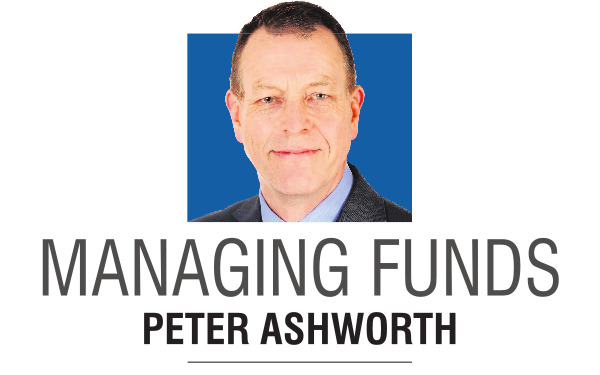
Some of it does read a bit like weather forecasting, the financial market equivalent of "a bit unsettled but generally fine".
However, the experience has made me think about the challenge of making decisions in a world where there always seems to be something to worry about, and for many of us the natural human response is to sit on our hands.
Many years ago, I had a client who described the process of entering his 60s as feeling something like entering "sniper’s alley", as a surprising number of his friends seemed to be receiving negative health news.

As I experience this same phase in my life, I am coming to understand and appreciate his comment.
What I am learning from friends and clients who are facing what is the ultimate uncertainty is that, once the initial shock of such news is digested, they are often no longer paralysed by fear.
They recognise that worrying about matters beyond their control is not only a complete waste of energy, but more importantly it robs us of our most precious commodity, time.
To emphasise this point I have created two lists.
1. Things that you have absolutely no control over and could be positive or negative for financial markets and may have some, probably short-term, effect on your finances.—
— The Russian Ukrainian war could continue, or a ceasefire may occur.
— China may seek full control of Taiwan.
— With national elections expected in at least 64 countries this year, political climate might shift.
— Donald Trump may be re-elected as President.
These matters are likely to get a lot of media coverage. Given our human propensity to ‘see the glass as half-empty’ (negativity bias) such news can easily be used as justification for inaction.
2. Things that you have absolute control over and will directly influence your finances.—
— Do you have a diversified portfolio?
— Is your mix of investments consistent with your age, stage, and risk profile?
— How likely are you to lose your nerve and sell your share-based investments (or change your KiwiSaver) if share markets fall by more than 20%?
— Are you planning to be debt-free in retirement or before?
— If you are in the pre-retirement phase, are you saving 10% of your income?
— If you are retired, what percentage of your capital are you spending each year?
— Are you paying more tax than you need to?
— Do you have a written plan for your finances?
From my observation many people never get to address the matters that are within their control because they are preoccupied by matters that they have absolutely no control over.
In a world with a 24-hour news feed and global coverage it is no surprise that many people suffer paralysis through a combination of fear and information overload. It takes a degree of awareness and conscious effort to not fall into this trap.
My final list is just a simple self-audit that I recommend that you do, because "stuff" happens.—
— Review your will if it hasn’t been looked at in more than five years or if you have recently married or another important life event has occurred.
— Consider establishing enduring powers of attorney covering both your property and care and welfare, and putting in place a statement of wishes. They are not just for "old people".
— If you have children or other dependants, have you appointed guardians in your will?
— If you have liabilities and/or people that rely on your income, do you have insurance cover to substitute for your income if you die or become disabled?
— Who owns your insurance policies? It can be more efficient for the policy owner to be someone other than the insured person.
— Tell the people that you care about what they mean to you.
My recommendation is to focus on the matters that you can control, seek advice if needed, but, most importantly, act.
Time is precious, in both an investment context and also in a life well lived. Carpe diem — seize the day!
— Peter Ashworth is a principal of New Zealand Funds Management Ltd and is a Dunedin-based financial adviser. The opinions expressed in this column are his own and not necessarily that of his employer. His disclosure statements are available on request and free of charge.












